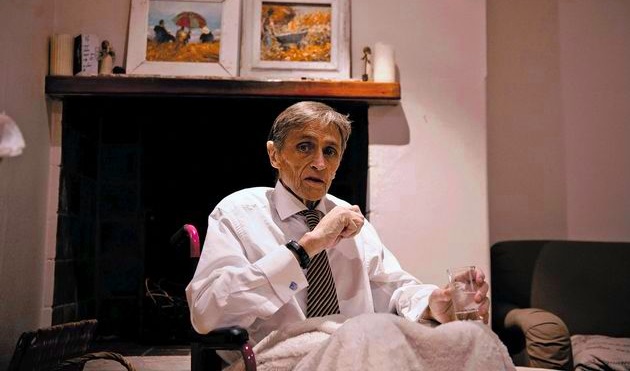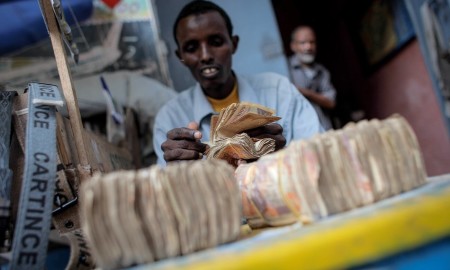Right to life is a fundamental right everyone is entitled to but what about the right to die? From common knowledge, suicide is said to take place when someone takes her/his life. When a doctor helps to end a person’s life, it is known as doctor assisted suicide. In most cases, this assisted suicide is often used interchangeably with euthanasia which is mercy killing.
Several studies have shown that physicians have received requests to end the lives of their patients at one time or the other. However, often times, euthanasia occurs when there is legal backing. The Hippocratic Oath of 400 BC contradicts all forms of euthanasia, it firmly states that “I will give no deadly medicine to anyone if asked, not suggest any such counsel“. This oath has been modified several times to suit the changing needs of the medical profession. In 1948, it was revised to state – “I will maintain the utmost respect for human life“. In the international code of medical ethics, it was revised again to state that it was the duty of a Physician to always bear in mind the obligation to respect human life.
South Africa
In South Africa, the South Africa Medical Association (SAMA) has warned its practitioners against engaging in doctor assisted suicide so as not to face prosecution.
However, on April 30, 2015, an unprecedented judgment was given in North Gauteng High Court in Pretoria , where judge Hans Fabricius ruled that 65 year old Robin Stransham-Ford be allowed to have a doctor assisted suicide. Robin Stransham-Ford who had prostate cancer died of natural causes few hour before judgment was ruled in his favor. The judge maintained his judgment.
Although assisted suicide is illegal in South Africa, Judge Fabricius maintained that the doctor helping Mr Robin will not be prosecuted. The SAMA however said that disciplinary action may still be taken as it was considered unethical. The chairperson of the association, Dr. Mzukisi Grootboom said that “the Health Professions Council of SA’s (HPCSA) policy remain in force, and such activities by practitioners could result in disciplinary sanctions by HPCSA “.
He went further to reiterate that “pain cannot be viewed as a persuasive enough to resort to the extreme measure to end one’s life”. Palliative care according to the association is used to relieve the pain and suffering of terminally ill patients.

Terminally-ill advocate Robin Stransham-Ford. Credit Times LIVE.
The court emphasized that its ruling is not to be used to endorse any proposal to end one’s life. It went further to state that the order was applied to only Stransham-Ford. Each patient with such a proposal is expected to approach the court and each application will be treated on its own merit.
The Facts
According to SA Federation for Mental Health, in 2014, South Africa had the eight-highest suicide rate in the world with approximately 8000 suicides in a year. Based on this statistics, about 230 persons try to commit suicide in a day and 23 succeed.
A survey by the medical association revealed that 12% of physicians had already helped terminally ill patients die, 60% were involved in passive euthanasia by withholding medication or procedure thereby hastening death, 9% had engaged in physician assisted suicide.
In a poll conducted in SA, 45% viewed euthanasia as morally accepted, 48% not morally accepted with a difference of 3%. The SAMA which is the largest organization for medical doctors in South Africa representing 17500 doctors insisted on palliative care against euthanasia.
The Debate
There have been a series of ongoing debates as to whether or not doctor assisted suicide should be made legal. The South African Ministers of Health and Justice, the Health Professions Council of South Africa, National Director of Prosecutions, Doctors for life and an NGO – Cause for Justice are on one side of the debate firmly stating that it should not be legalised as its consequences outweigh any benefit that could be derived.
SA health minister, Aaron Motsoaledi said that doctors should not be given the right to end a person’s life because “they are not God”. He added that it may lead to unethical and fraudulent behaviors among doctors. He fears that families may connive with doctors to end a person’s life so as to get insurance funds or inheritance money.
“We can’t have that situation in South Africa because it would be difficult to police and deal with. To prevent it, we must stop it before it goes further”.
On the other hand, founder of Dignity SA, professor Davidson Sean as well as NGOS and other pro “Right to Die” organisations are of the opinion that it should be legalised as all forms of fraud can be checked by the law, after all they say ” that’s the purpose of the law!”. Davidson Sean who was arrested in 2010 for assisting his terminally ill 85year old mother to die has been an advocate of right to die. He says anyone in excruciating pain should be given a chance to end her/his life. For him, the Stransham-Ford ruling will spark up a need to revise SA’s law concerning euthanasia
Vera Jonkers, a pro right to die respondent stated that doctor assisted suicide should “absolutely” be allowed by law. She emphasized that every time physicians prevent a patient from dying, they play God. This was to contradict the Health Minister’s claim that physicians are not God and as such should not decide if a person should die or not.
Another concerned respondent observed that maybe the HPCSA’s polices and World Medical Association’s codes/guidelines needed to be revised. She added that “assisted suicide is permitted in some countries.” “Although it is a legal option there, are the practitioners still bound to the charter?” She asked. Paul Scott Meinhold, an ex-nursing sister in SA opined that the HPCSA needs to be progressive as quality of life matters not just quantity..
In another development, palliative care has become a source of major concern in South African medical field. A concerned citizen, Romy Sommer drew attention to the fact that palliative care for the poor in SA is almost nonexistent as quality palliative care can bankrupt families and become a great burden. She pointed out that it is a luxury only the wealthy can enjoy.
Despite The Controversy
Professor Ames Dhai however warned that even if it becomes legal, such a doctor will be reported to the Health Professions Council to face ethical and disciplinary inquiry. The judge tried to play down his decision knowing its implication by saying “it is not correct to say from now on it will be a free-for-all.”
The National prosecution spokesman however did not find it amusing as he stated that the court’s ruling has far reaching implication, medically and constitutionally. After the ruling on Stransham-Ford case, three more people are set to take their applications before the court courtesy of the Dignity SA organization.
Despite the ongoing controversy about assisted suicide or euthanasia in South Africa, it remains illegal till date.
[Header image]– noassistedsuicidepa.org

















